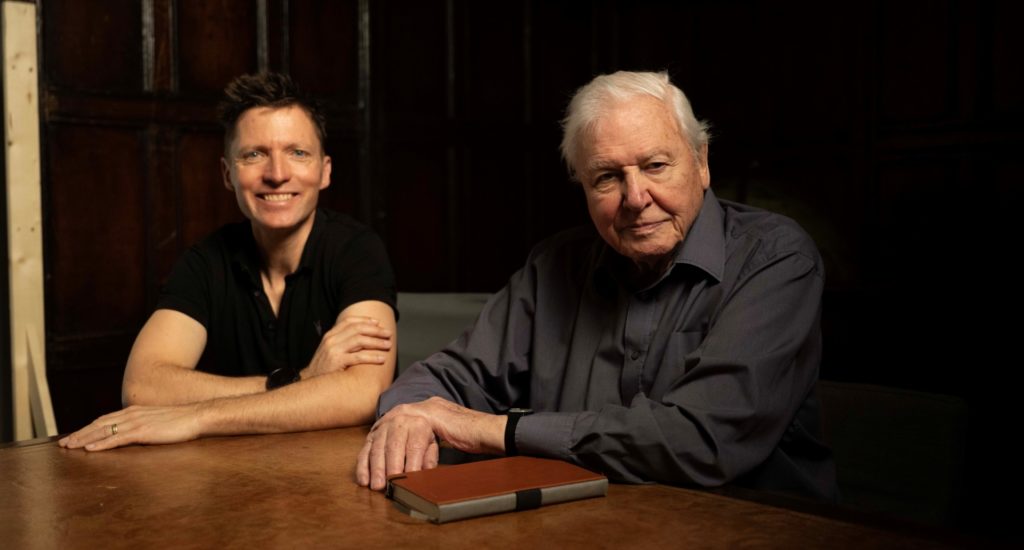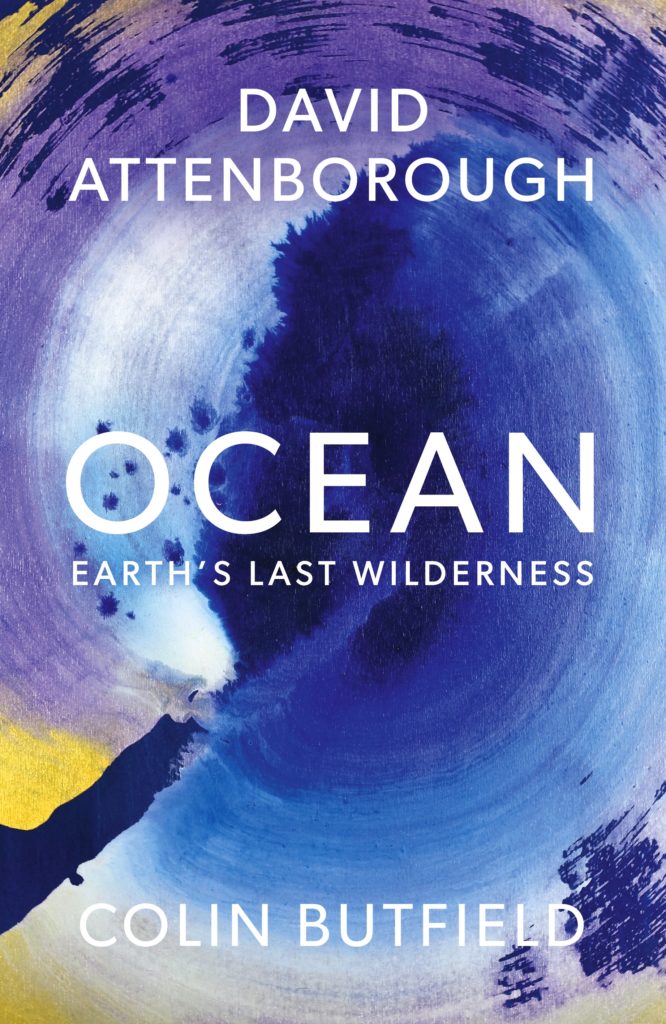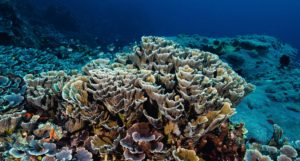Exeter experts advised on ‘Ocean’ by Sir David Attenborough

Colin Butfield and Sir David Attenborough. Credit Toby Strong / Open Planet Studios / Silverback Films
University of Exeter researchers gave scientific advice for Ocean – the new film and book by Sir David Attenborough.
The film is in cinemas from Thursday (May 8), the same day as the book – Ocean: Earth’s Last Wilderness – is released.
Ocean takes viewers and readers on a “breathtaking journey showing there is nowhere more vital for our survival, more full of life, wonder, or surprise, than the ocean”.
Dr Casper van de Geer, who worked with Sir David’s co-author Colin Butfield on the book, said: “Ocean is aimed at people who want to know more about the current state of the ocean and its future.
“It brings together the biggest discoveries in marine science from the last 20 years, which includes work form the University of Exeter.
“It has been a privilege to work on this book with Colin Butfield and Sir David Attenborough, who’ve brought so many incredible nature stories to the world already.
“Leading on the research for the book has been a pleasure. Tapping into the wealth of knowledge from my colleagues here at the University of Exeter as well as researchers around the world has highlighted the global effort required to reverse this trend of decline, but as showcased in the book, there is hope if nature is given the space it needs to recover.”
Dr van de Geer, from the Centre for Ecology and Conservation on Exeter’s Penryn Campus in Cornwall, brought in several Exeter colleagues to assist.
PhD researcher Madi Bowden-Parry, who reviewed content in the chapter about kelp, said: “The book details some of the most transformative marine discoveries and conservation stories over the past two decades, featuring personal accounts from the inspirational people behind them.
“For me it feels like a full circle moment; having dedicated my short career so far to deepening our understanding of the ocean, particularly its past and how this can be used to inform the future, along the way I have been fortunate to meet and chat to Sir David Attenborough about these very things.
“To be able to contribute my knowledge to his latest book was a pleasure and special moment for me.”

Professor Daniel Mayor, who helped with the chapters on the deep sea and oceanic islands, said: “I can say with absolute certainty that Sir David Attenborough and his countless documentaries inspired me to take up marine biology and become the researcher that I am today.
“It was a real pleasure to spend two months sailing onboard his namesake – the Royal Research Ship Sir David Attenborough – around Antarctica earlier this year, studying how microscopic marine animals help the ocean lock carbon away from the atmosphere.”
Professor Callum Roberts, who reviewed the film’s script for scientific integrity and helped with the book chapter on coral reefs, said: “For many years scientists like me have been revealing, study by study, the massive impact that fishing using bottom trawls and dredges has on seabed life.
“This film brings the collateral damage done by industrial fishing into stark focus, but also shows amazing power of ocean life to regenerate when we protect it.”



